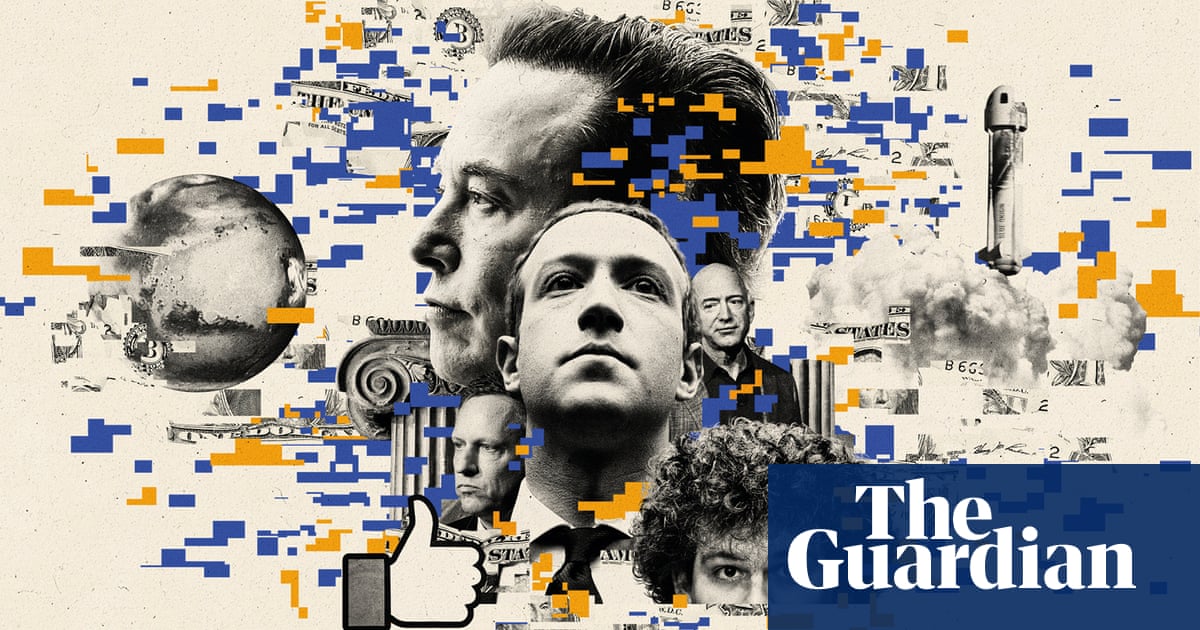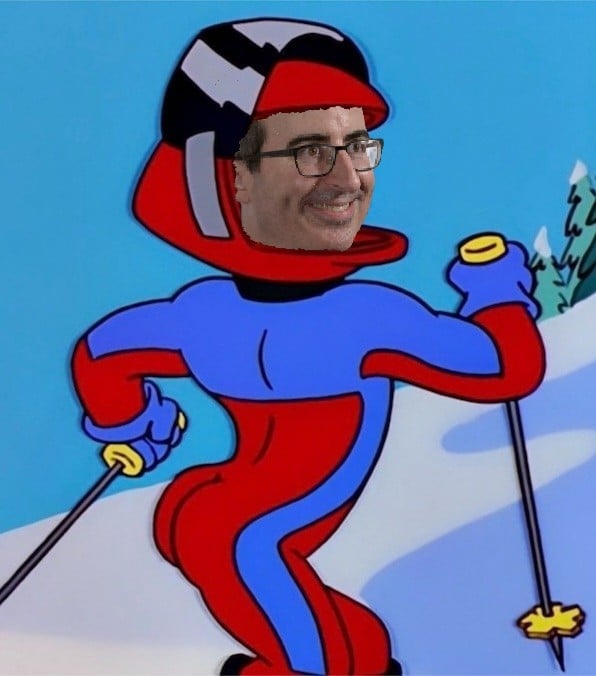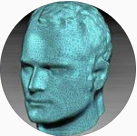Their words and actions suggest an approach to life, technology and business that I have come to call “The Mindset” – a belief that with enough money, one can escape the harms created by earning money in that way. It’s a belief that with enough genius and technology, they can rise above the plane of mere mortals and exist on an entirely different level, or planet, altogether.
they truly believe they exist on different plane from the rest, and that chaos is not their problem… the troubles of the world are something other people have to deal with… they can pay someone to deal with it…
I mean, looking up at them from down here they do.
Yeah I can’t think of any of my problems that would be an issue for a billionaire. The only one we all have in common is probably
cancer, death and maybe microplastic ingestion.Though they can afford full body scans for cancer and catch and treat it before I even have an appointment after feeling sick for months.
Look on my works, ye mighty, and despair.
Those are two contradicting statements. Or maybe they aren’t, maybe the rest of the world is poorer?
Oddly enough, while their schemes are certainly more outlandish, on an individual basis today’s tech billionaires are not any wealthier than their early 20th-century counterparts. Adjusted for inflation, John Rockefeller’s fortune of $336bn and Andrew Carnegie’s $309bn exceed Musk’s $231bn, Bezos’s $165bn and Gates’s $114bn.
But, as chronicled by Peter Turchin in End Times, his book on elite excess and what it portends, today there are far more centimillionaires and billionaires than there were in the gilded age, and they have collectively accumulated a much larger proportion of the world’s wealth.
Sounds to me like the individual most-megabillionaires of today aren’t as rich as their individual predecessors, but there are a lot more super-wealthy people in general and the general populace is poorer on average.
It’s the latter.
So the common person is poorer than the people around during the age of the robber baron?
Unless I missed it, your quote only mentions the comparative wealth of modern robber barons to their predecessors, and not the comparative poverty faced by the world today. So when you said, as I understood it, maybe today’s robber barons aren’t any wealthier than their predecessors but that the rest of the world is poorer (comparatively speaking) than in previous times, I said I believe that the rest of the world has gotten poorer than it has been before due to what I perceive as current robber barons working to hoarding away resources from the rest of the world’s current availability. I hope this makes sense.
Yes
It means the absolute richest are not as rich as a hundred years ago…but there are a lot more of the very rich that don’t quite reach the lofty heights of those top ones, which means overall, more wealth is in the hands of people with over a hundred million dollars.
So Musk, how’s that working out with Sweden?
Do they really think everyone else won’t eat them? They have no skill or intelligence. Elon never even had an engineering degree and his whole persona is a facade. Without the rest of us, billionaires have no particular quality that would make them likely to survive their bunkers being raided.
Pretty soon when we got robots he doesn’t need to worry no more.
That is until the robots eventually kill him and do a skynet type of path
Or He realises that you can’t perform killer robot maintenance with a business degree.
Idk what do you mean, but I do know you can use AI and algorithms to find the leaders of certain movements(like China did in Hong Kong.)
So how do you stop 15 million people, at any other point in history, you don’t. Now it’s easy, just sistematically isolate and hunt down the movement organizers until there are no more.
No joke, they can be tools of one man used to repress a city
Keltner’s The Power Paradox covers this phenomenon. As we rise in power and influence, it is very easy to lose those same qualities that allowed us to gain power in the first place.
What qualities?
My summary of his book is that people rise to power by contributing to the greater good. They empathise with those around them and are likeable. Power is thus given to them by others.
The paradox is that it’s been suggested by several studies that those that gain power (or those that feel powerful) tend to be less empathetic and focus more on themselves.
He does not prescribe to the Lord of the Flies world view.
My summary of his book is that people rise to power by contributing to the greater good
Like owning an Emerald mine? And be surrounded by influential people who help you, because you’re filthy rich?
The paradox is that it’s been suggested by several studies that those that gain power (or those that feel powerful) tend to be less empathetic and focus more on themselves.
That’s not a paradox, it’s easier to get rich risking other peoples money if you don’t give a shit about them in the first place.
This is completely missing the point. Because they don’t lose the qualities that got them rich in the first place.
What they lose is their humanity and any shred of empathy, and even contact with reality, if they had it to begin with, which many didn’t.
Super strange. They forget their human. Like, if you see them in public, you can totally call them a ass-monkey, and then watch them melt a bit.
I suspect there’s something that happens psychologically that few—if any—of us understand when you reach the levels of wealth these men have. When your bank accounts have more in them than the capital of entire nations, you are not simply rich, you own a significant portion of the world’s wealth. The decisions you make with that kind of money affect thousands, millions, or even billions of people. In a financial sense, you really have reached the level of “demigod.” So, is it any surprise these people start acting like it? We see fame go to celebrities’ heads all the time; why wouldn’t this?
I suspect also that these positions—those of visionaries that, intentionally or unintentionally, put profit ahead of societal benefit attract certain types of personalities, and it wouldn’t surprise me at all if it attracted those with narcissistic qualities. Sociopaths make up around 1% of the general population, but if you look only at business CEOs, they make up about 5% of that population. So that may be a factor too, but I still think the contextual factors play a greater role.
There’s an unofficial diagnosis (and I can’t stress that enough: it’s not in the DSM or ICD10, and I can’t attest to its legitimacy at all as I know of no actual research about it) used by some who have treated celebrities and other famous, hyper-successful people: situationally acquired narcissism. This diagnosis alleges that a person has acquired narcissistic traits into their personality by virtue of being treated like a superior by sycophants and manipulators around them enough that they have unwittingly internalized all that praise and support, and now genuinely believe they deserve to be treated that way because they really are better than the rest of us.
All that being said, I’m still struck by the fact that these people have experienced something radically different than most (extreme wealth), and thus it’s probably a bit hard for any of us to truly understand them. I’m not making excuses for them, just reflecting on how we might not be so immune ourselves to whatever psychological effects being that wealthy and influential has on a person.
“Eating the rich” is probably the wrong idea; we have to prevent people from becoming that rich in the first place, because it’s not good for them or society.
This is the best summary I could come up with:
Like a latter-day Icarus flying too close to the sun, disgraced crypto-god Sam Bankman-Fried crashed and burned this month, recasting Michael Lewis’s exuberant biography of the convicted fraudster – Going Infinite – into the story of a supervillain.
Reading about their apocalypse bunkers, vampiric longevity strategies, outlandish social media pronouncements, private space programmes and virtual world-building ambitions, it’s hard to remember they’re not actors in a reality series or characters from a new Avengers movie.
While plans for Peter Thiel’s 193-hectare (477-acre) “doomsday” escape, complete with spa, theatre, meditation lounge and library, were ultimately rejected on environmental grounds, he still wants to build a startup community that floats on the ocean, where so-called seasteaders can live beyond government regulation as well as whatever disasters may befall us back on the continents.
Digital businesses depend on mineral slavery in Africa, dump toxic waste in China, facilitate the undermining of democracy across the globe and spread destabilising disinformation for profit – all from the sociopathic remove afforded by remote administration.
By combining a distorted interpretation of Nietzsche with a pretty accurate one of Ayn Rand, they end up with a belief that while “God is dead”, the übermensch of the future can use pure reason to rise above traditional religious values and remake the world “in his own interests”.
The launch was like Amazon’s version of the Macy’s parade, except instead of marching down Broadway with giant balloon characters for our kids, the company’s largesse consisted of letting us bear witness to its founder’s superhuman achievement.
The original article contains 2,352 words, the summary contains 254 words. Saved 89%. I’m a bot and I’m open source!
deleted
Muskposting earns you a block 🤷♂️

Your lameness earns you one
Lameness. Nice.
And I care about you….why?
Cool. 👍








